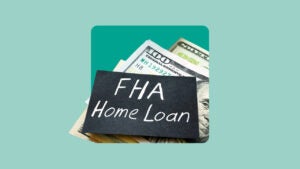Gap insurance in North Carolina: what you need to know

When purchasing a car with a loan in North Carolina, it may be wise to consider gap insurance. This type of insurance, sometimes called guaranteed asset protection, is designed to help when a vehicle is totaled and the owner still owes money on their car loan. It may be beneficial in situations when the payout from a collision or comprehensive coverage claim doesn’t cover the remaining balance on the loan.
What is gap insurance?
Gap insurance in North Carolina can help cover the “gap” between an auto insurance claim payout and your remaining loan balance if your car is declared a total loss or stolen and unrecoverable. In these scenarios, insurers pay out the vehicle’s actual cash value (ACV), which takes into account depreciation. But a gap may exist if the depreciated value of your car is less than the amount you still owe on your loan.
This is especially relevant for new vehicles, which can depreciate by roughly 10 percent upon leaving the dealership and potentially lose up to 45 percent of their value within the first year of ownership. In essence, the purpose of gap insurance is to prevent you from having to make loan payments on a car you no longer possess.
Learn more: How is the value of my car determined?
How does gap insurance work in North Carolina?
Before you start shopping for North Carolina gap insurance, keep in mind that only some cars are eligible. Even the best insurers might only offer gap insurance if:
- The car is less than 2–3 years old
- You also have comprehensive and collision coverage
- You are the original owner
Not all financed vehicles will meet these criteria. Even if most lenders require comprehensive and collision coverage, some financed vehicles are not new enough for gap insurance to be necessary or beneficial. In addition, if you are not the original loan or leaseholder, you may not be able to obtain gap insurance in North Carolina.
Gap insurance also should not be confused with new car replacement coverage; there is a distinct difference between the two. Gap coverage pays the difference between your car’s ACV and what you still owe to a lender. New car replacement provides financial compensation to replace a totaled vehicle with a new version of the same make and model. While the replacement cost might be more than an actual cash value payout, it would not account for the outstanding balance on your loan.
When do you use gap insurance?
You can only use gap insurance in NC if the car is determined to be both undrivable and a total loss, meaning the cost of repairs exceeds the value of the vehicle. A simple fender bender would not qualify, but here’s a situation that would.
Imagine you recently purchased a new car with a $25,000 loan. Soon after, you accidentally run a stop sign and collide with another vehicle. The good news is that you have collision insurance, which will help pay to repair your vehicle. The bad news is that you have to pay a $1,000 insurance deductible and your car’s depreciated value is $21,000, meaning you’ll only receive a $20,000 payout.
Luckily, you have gap insurance, which will help cover the remaining $5,000 owed on your car loan.
How much does gap insurance cost in North Carolina?
The cost of gap insurance in North Carolina will vary depending on numerous factors, including insurance provider, vehicle type, location and other personal rating factors. The average cost of a full coverage car insurance policy in North Carolina is $1,713 per year, but your personal rate, including the addition of a gap insurance endorsement, will vary from this average. The best way to understand what you might pay for gap insurance is to request personalized quotes from a handful of carriers.
It’s generally smart to monitor third-party valuation sites, such as Kelley Blue Book or Edmunds, to consistently compare your vehicle’s estimated ACV to your loan balance. This strategy can help you determine if maintaining gap insurance on your policy is worth the additional cost.
Gap insurance vs. other coverage types
Gap insurance is similar to other types of car insurance in that it protects your financial well-being after an accident. In a way, it is protecting your lender, too. For this reason, some lenders may require gap insurance just like they require comprehensive and collision coverage.
Here is how all three compare with one another:
| Gap insurance | Comprehensive | Collision | |
|---|---|---|---|
| What it covers | Helps pay the difference between an insurance payout for a total loss and the remaining loan balance. | Helps pay for damage your vehicle incurs in an incident other than a collision, such as theft, vandalism, weather-related events and more. | Helps pay for damage your car sustains while it is moving (regardless of fault), such as colliding with a car or hitting a sign or fence. |
| Who offers it | Can be purchased through many dealerships, banks and insurance companies. | Most car insurance companies offer comprehensive coverage. | Most car insurance companies offer collision coverage. |
Where to buy gap insurance in North Carolina
Although there are numerous gap insurance providers, do not be surprised if your insurer does not carry it. It is not a standard coverage and may only be necessary for newer, financed vehicles. Gap insurance is also sometimes called loan or lease coverage, so you may have to refer to it by its alternative name when shopping around.
Dealerships can be a convenient place to obtain gap insurance in North Carolina. However, they may want to roll the cost directly into your loan, which means you will end up paying interest on it. This can make gap insurance more expensive than if you purchase it separately from a car insurance company. As with any type of coverage, it is always recommended to compare quotes from multiple providers to find the best rates.
Gap insurance companies in North Carolina
- Allstate — Allstate offers a number of coverage options, including gap coverage, as well as several discounts to potentially help lower your premium.
- Liberty Mutual — Liberty Mutual offers gap insurance in addition to a number of coverage options and discounts.
- Nationwide — Nationwide offers gap insurance for vehicles six years old or less, which is more flexible than some other providers.
- Progressive — Progressive offers a number of coverage options, including gap insurance. However, Progressive calls it loan/lease coverage.
- Travelers — Travelers offers gap coverage too, as well as several other types of insurance like home, rental, wedding and event and more.
Frequently asked questions
-
-
Gap insurance is similar to other insurance types in that the average cost will vary from driver to driver and company to company. However, note that if you purchase gap coverage from a dealership, you may end up spending more than if you went through a traditional insurance company. This is because the cost of the gap policy will likely be added to your loan, and you’ll end up paying interest on it.
-
In general, states don’t require gap insurance. However, if you finance your car, your lender might. Similarly, lenders often require borrowers to carry collision and comprehensive insurance until their car loans are paid off. So, while North Carolina car insurance laws don’t require gap coverage, it may still be mandated in some situations.
-
You should be able to remove gap insurance from your policy at any time through your insurance provider’s website or mobile app. However, depending on the agreement you had with your lender, you may have to maintain gap insurance for the duration of your loan. So before you cancel gap insurance, you should always consider speaking with your loan specialist to avoid any potential breach of contract.
-
Why we ask for feedback Your feedback helps us improve our content and services. It takes less than a minute to complete.
Your responses are anonymous and will only be used for improving our website.








